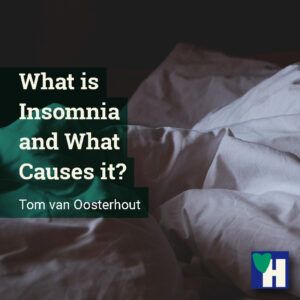
What is insomnia and what causes it? Insomnia primarily discourages the recovery we need after a day’s work. For years insomnia has been understood as an unavoidable condition of growing older.
It was considered a matter of fact that a healthy sleep starts to dwindle in late middle age. From then on it should steadily erode.
Fortunately this is not true. Although, this does not mean there is no cause for some concern. There are major threats to our sleep ‘architecture’ and sleep ‘quality’, from inside and outside of our bodies. However, what is insomnia and what causes it?
Table of contents
- 1 I love to be awake
- 2 What is insomnia and what causes it?
- 3 Power nap
- 4 No insomnia from food or drinks
- 5 Insomnia is a discouraging experience
- 6 Insomnia and unhealthy habits
- 7 Insomnia and environmental conditions
- 8 Insomnia and its consequences
- 9 Sweet dreams
- 10 How to fight insomnia?
- 11 Disfruta el silencio. Es gratis
I love to be awake
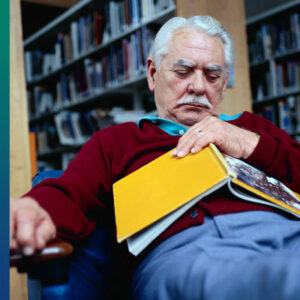
Let me first explain my personal experiences with insomnia. I have none. Of course, now and then I wake up at night. Caused by a noise or an urgent sanitary call. It might even happen that I stay awake in bed for a couple of hours. I don’t mind.
These are the hours that my mind is allowed to wander through all its depths and corners. Kind of pleasant experience that is. The only really annoying disturbance is the racket people make in the middle of the night. I will come to that at the end, first I will introduce some data on insomnia.
What is insomnia and what causes it?
Insomnia is a dreadful condition. It’s the impossibility to fall asleep. Even a hard days work, or exercise, or just the opposite, a days rest, or meditation can not change this condition. When we suffer from insomnia, nothing can get us to fall asleep.
People with healthy lives sleep and dream a little bit less than other people. Half of people over 60 experience no sleep deprivation at all. Insomnia is actually related to changes people experience in their sleep habits between the ages 20 and 60.
Those habits mainly changed as a result of health conditions. Although environmental circumstances can also cause insomnia.
Power nap
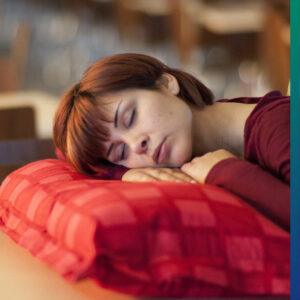
Personally I’m not aware of any changes in my sleep habits. I can sleep any time during the day. Often I close my eyes in the afternoon for 10 to 20 minutes. Some call this a power nap. But I never experience more power after my nap.
Fortunately my power naps never interfere with my night’s sleep. At least as far as I know. I always sleep 7 to 8 hours, I think I’m doing okay. Usually I wake up in the middle of the night to use the bathroom.
For me, that’s already almost a lifetime experience. Afterwards, I fall asleep with no effort. I don’t want to change this night time habit, because it’s related to another regular and healthy habit: I drink the same and right amount of water everyday.
No insomnia from food or drinks
We never eat a full meal after 17:00 hours. We start the day with a nutritious and healthy breakfast. Between 14:00 and 15:00 hours we eat our second full meal: usually a mix of vegetables, sometimes with a little bit of fish, or chicken or turkey.
We don’t add salt or pepper to our food, nor do we overspice it. We also prefer to use green and fresh herbs. I don’t drink coffee. We both drink herbal tea, fruit juices or water. All organic of course.
I used to have one vice. I drank lots of sugar-free (de)caffeinated sodas. Also during the evening. Never did these sodas interfere with my sleep habits (I think). Nor does the food we eat (for sure). Of late, I regularly skip my vice for 1 or 2 weeks. I’ve also reduced the number of soda drinks to 1 or 2 a day.
Insomnia is a discouraging experience
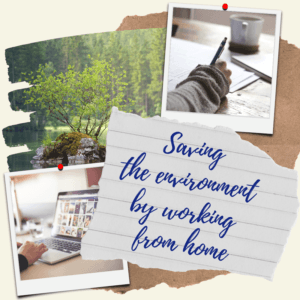
These eating and drinking habits of us raise the question whether insomnia is foremost an individual and therefore subjective experience. Of course it is. However, persistent insomnia is quite another cookie.
Persistent insomnia is traumatic, intrusive, overpowering, resistless, in short a discouraging experience, and for some in the end even a life threatening experience.
Persistent, traumatic insomnia is no joke. It’s caused by unhealthy habits and environmental conditions. It’s an ailment, a disorder that can be prevented, and which needs serious remedy before it’s too late.
Insomnia and unhealthy habits
What causes insomnia? Four unhealthy habits are usually suggested as a source of insomnia:
- A weighty cause is the sun. Too much sunshine disrupts our physical rhythms. On the other hand, we need the sun as a source of vitamin D.
- Chronic over-activity makes us hypersensitive to noise, as a matter of fact, to any noise.
- Illnesses such as rheumatism, ulcers, worn out hearts, migraine, asthma, bad kidneys, trauma etc. keep us awake. If not from worrying, it will be from pain, or upset bowels, or hypertension.
- Excessive use of alcohol and medication.
Insomnia and environmental conditions

In terms of its insomnia consequences, nocturnal environmental noise is pointed out as the most troublesome cause. This is explained as follows. Insomnia acts as a warning system. It’s a mediator between the disturbance and our sensitive biological systems.
Sleep deprivation, insomnia, causes endocrine and metabolic perturbations. These are associated with long-term cardiometabolic, psychiatric and social adverse outcomes in adults, as well as in children.
More specifically, the very young children – babies – and the elderly, are the people who are the most vulnerable for noise overloads. Nocturnal noise overloads are the worst and afflict also many other, and very healthy, people.
Insomnia and its consequences
More precise, unhealthy habits and noise overload, cause sleep disorders which have similar practical consequences:
- Daytime drowsiness and tiredness;
- Annoyance, mood changes;
- Decreased well-being, and decreased cognitive performance;
- Growing feelings of stress and anxiety;
- Disturbed metabolism, and digestion.
Sweet dreams
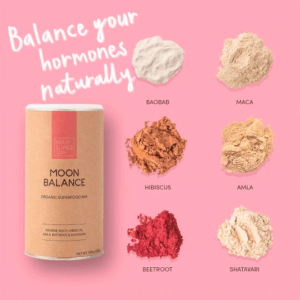
To be able to grasp the significance of an undisturbed night’s sleep, it’s important to understand what happens when we sleep. Our body has a number of highly sensitive scanning devices. These are not switched off during the night.
As a result, during our sleep, we never lose contact with our environment. This is why nocturnal environmental noise and insomnia are related. But this is also clear from the function of our dreams. It’s a fairy tale that our dreams refer to the experience of unfulfilled desires.
That we dream is the consequence of the way our body functions as a biological system. We dream because during our sleep our brain must continue to function. What happens is that when we sleep our brain keeps on producing the impulses that keep us alive. These impulses are like an electric storm chasing through our brain, and as a consequence cause our erratic dreams.
How to fight insomnia?
When you experience serious insomnia, you have to consult a physician. For now you might try one of the following remedies:
- Change the arrangement of your bedroom. This is a simple way to discontinue physical conditioning;
- Go to bed and get out of bed at fixed times. Don’t change this;
- Don’t watch TV or sit behind your computer, laptop or mobile phone one hour before you go to sleep. Don’t bring these devices into your bedroom;
- Don’t worry when you try to sleep. This is somewhat more complicated, but try to think of anything that might distract you. No matter how unreal or unattainable. Call it ‘daydreaming’;
- Never catch up on lost sleep during the daytime;
- Stop drinking alcohol, coffee, tea, and sodas, stop smoking, and stop eating chocolate, or cheese. And never have a full meal after 17:00 hours;
- Keep a sleep diary and meditate.
Related: How to Sleep Better and Faster when you’re Aging
Disfruta el silencio. Es gratis

One of my slogans here in Spain is: Disfruta el silencio. Es gratis. In English: Enjoy the silence. It’s for free. Silence in Spain is quite a challenge, because of the climate and the outdoor culture that comes with it.
But of late there is some rising political awareness of the detrimental effects of the noises that go with this type of life. Not to mention the anxiety that comes with it, and the threats to the health of so many people.
Of course, all of us should start to make an effort. Let’s try to make life easier, and actively fight insomnia by always restricting our noise.
Have a good night’s sleep!
Do you have a good night’s sleep? Please share your sleep, or insomnia experiences with us in the comment box.
Some of the links are affiliate links. As an affiliate associate, we earn a commission when you purchase any of the products offered through the shared links at no extra cost for you. This helps us maintain this website.

Hi Tom, Thank you very much for your article!
I know about this problem personally. More than 25 years working at night shift as a nurse has damaged my sleep cycle, and I had many problems falling asleep for years. I tried everything, and I have to say, nature’s sound and living in a quiet place have helped me very much. Listening to frogs in the night or to crickets helps me to sleep.
However, here in the Netherlands, it is a challenge to have a good night’s rest. Different cultures, cars, the neighbors that are very noisy at night, is a real problem. You hear depending on the wind the motorway all night. It is devasting, and we are trying to move back to a recreational park. We lived there for some years.
I sleep grounded, which has helped me a lot, but still, the noise of others does strain me. My energy is gone in the morning when I get ready for my nursing job.
There are too many people in this small country, for sure. People don’t keep the nighttime as quiet time anymore.
Sleep is something essential to clean and detox the body, significant. 🙂
Hi Sylvia,
Your welcome.
The ventriloquist Jeff Dunham has a character called Achmed. Achmed the Dead Terrorist. When the audience laughs or applauds, Achmed says “Silence! I kill you!” You have to see it because as I write it down it isn’t that funny.
The problem with silence is that those who cherish it always lose from those who hate it. However, it’s as with smoking in the street or on a terrace. You can’t avoid it. Likewise, you can not avoid noise. People cause a lot of acoustic pollution.
It’s very unfortunate that you live in The Netherlands. A couple of years back the minister who was responsible for roads and traffic increased the noise standards. Meaning that more road noise was allowed, specifically close to urban areas.
He, or she, had two arguments for this. The first was that it was practically impossible to maintain the low noise standards. The second argument was that the minister could no longer carry the legal burden of two opposing concerns: strict standards on the one hand and a constant breach of these standards on the other.
Specifically, the second argument is interesting. From a legal point of view, and even morally, it’s a very praiseworthy choice. This is how government authorities should always argue. What is interesting though, they never do. Only when they don’t care what harm they do, they use all kinds of ingenious legal excuses.
I use a slogan, perhaps you’ll like it: Enjoy the silence, it’s for free. (Geniet van de stilte, die is gratis)
For now, stay safe, stay healthy.
Regards,
Tom
I’m glad that you don’t have any problems with insomnia. Usually, I sleep well. The only problem is that I only sleep 5-6 hours, which is not enough in my opinion.
When it comes to Insomnia, I think I never experienced it. However, few times, when I was just too tired of work, I couldn’t get asleep for at least an hour or two. But I don’t think it’s insomnia.
I also work night shifts half of the month, so it’s ruining my night sleep. But, all in all, everything’s fine.
Hi Petar,
Thank you for your comment. Good to see that everything is fine and you don’t suffer from insomnia.
But you’re right, 5-6 hours sleep is not enough, you should at least sleep 8 hours a night. Although with night shifts this is quite a challenge.
Night shifts do not only disturb your sleep when you’re on night shifts but also during the other nights when you’re not. Unfortunately, in many professions, night shifts cannot be avoided.
After a hard day’s work, your body is still full of work stress. This will keep you awake. Try to relieve the stress with some exercise or a stiff walk before you go to bed. You might also try to meditate or yoga, but not everybody is into that. And do not drink coffee or alcohol or eat a large meal after 17:00 hours.
For now, stay safe, stay healthy.
Regards,
Tom